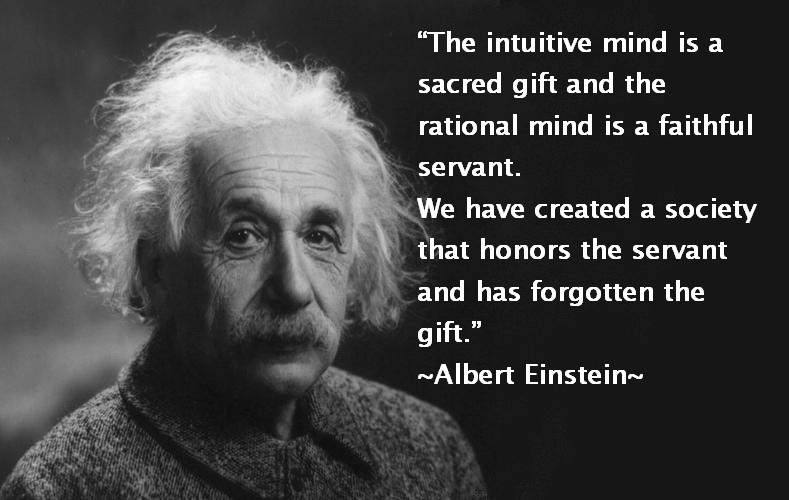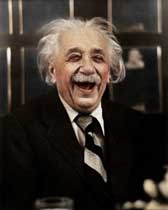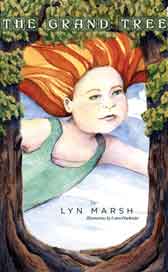He doesn’t remember her. Her smile holds the sweet innocence of a kernel of corn revealing its inner cosmos. He does not move his eyes from hers and everything that is not her eyes, evaporates. Her liquid brown cauldrons are swirling with glimmering golden patterns of light– in this moment. He is fascinated by their allure and enchanted by the golden fractals being formed as the dark liquid light creates infinite incomprehensible beauty. He enters them.
Now he knows — why life forever searches… to know its truest nature.
Barbara McClintock sneezes from her whole afterlife body… and spiraling showers of light are everywhere moving as a night jasmine blossoming into the night sky. And there is a slight scent that hums the sweetness of that night jasmine’s breath.
Einstein senses himself again… in conversation with McClintock… at the edge of the Cosmos.
Einstein:
I would like to be together with you, too.
I remember when I was 50 or so, that an atheist at a dinner party began disparaging God, and insisting that belief in God was a superstition. He assumed that because I thought astrology was superstition, that I would also think that of God. He then asked me if I was religious.
I have never really felt myself to be a religious person, but I said to him and the others, “Yes, you can call it that. Try and penetrate with our limited means the secrets of nature and you will find that, behind all the discernible laws and connections… something subtle, intangible and inexplicable remains. Veneration for this force beyond anything that we can comprehend — is my religion…”
This is what I feel in your presence.
McClintock:
Thank you. I have respected your work with reverence. It seems that I have been lifted into a pause… beyond my afterlife home in the corn fields… and the cosmos gifted m — you.
Einstein:
Your corn fields… You listen to them. And then you can hear. You can hear them with your eyes. And they sing to you beyond what your eyes can see or hear.
To me, true nature is an elixir of numinous imagination, and the question is… what kind of relationship do we want to have with it ?
McClintock:
Yes, and I believe that the kind of relationship we can have, is infinite. We perceive nature uniquely, according to the relationship that we choose to have with it.
I had inner confidence in my work. I had been uncertain in my knowing… but I had a strong sense that I would continue to find wonderful discoveries. And I fell in love with my corn. I didn’t know this would happen, but as I became more intimate with the kernels, I loved each one of them and I loved my corn fields. I understand what you mean when you say that I could hear them with my eyes, and they sang to me. Yes, their music moved my soul. And this has continued to become more, here.
I am now communicating directly with their DNA… We sing together… and new fractals of unmentionable beauty unfold before my eyes… I feel as though I could be there… forever…
Einstein:
It seems that you are making beauty. Secrets of you are… They are held in this… are they not?
McClintock:
I am lifting myself free here. In my life, intuition, imagination, inner perception… were dismissed by researchers in most fields, as having minimal value.
Women were not allowed to be professors at universities. They were supposed to ‘keep their place’.
In graduate school, I was wild and free, creative and celebrating life. I was having so much fun. I was well known by my classmates because of my innovative research. Eventually I was invited to be part of a sorority… and into other privileged groups. This bothered me a lot, because others, including some of my friends, were excluded. I rejected the groups that held a philosophy of elitism. I pulled back more into my research.
My life became my research. I could see and hear the whispers of the DNA. There was nothing in the DNA that tried to exert dominance ‘over’ anything… or that tried to be superior to other aspects of a cell… or chromosome, within the cell.
It’s rhythmic dance of recessive-dominance was a conversation with life… with All That Is… all within a kernel of corn. It was exhilarating to experience and to wonder about…
Early in my career, when I dealt with universities and the chauvinism, my defiant behavior was more like an angry fragile web in which I moved myself about… hoping that those in ‘authority’… would get stuck in my web long enough to see me as a person who had something that would offer new directions in the field of genetics. But it turned out that they became more rejecting and discounting, as they would feel trapped. I kept getting into trouble and it just made my life harder. I had friends though, who kept helping me, until my discoveries were acknowledged mainstream.
Between 1929 and 1931, I published 9 papers detailing my explorations of the morphology of maize chromosomes, and I had many successes in correlating the new markers in the cells… with known genetic markers. I lived close to poverty at times, after receiving my PhD in Botany from Cornell University, in the year 1927; and I didn’t really mind it, as long as I had somewhere to grow my corn fields.
Einstein:
What have you discovered… in the maize… of nature itself ?
McClintock:
A kernel of corn is alive and it is communicating with everything in its world. It is aware… Its DNA is communicating with the cell, with the organism, with the environment. The chromosomes share themselves with one another… in response to something greater. A chromosome might give up something of itself so that another chromosome can have more. The genes may jump around to different positions in the DNA. Nothing separates itself from anything else.
Everything moves in symphony with everything else. And what people call aberrations, are actually messages about life and life’s patterning. They could be new forms that support life in a new way. Maybe they are saying… go a different direction. Some of the aberrations result in death or disease, and this is how nature releases mistakes.
So I believe that nature is a conversation of… and with… a Force beyond any human comprehension. And every bud, flower, stone, kernel of corn… has its own connection and portal in the cosmos of Divinity…
Einstein;
What about the nature of who we are?
McClintock:
As long as we try to elevate ourselves with one another, with nature… we can not know our true nature. When we surrender our sense of separateness with nature, we will be able to know more of our own.
Einstein:
As I mentioned earlier, I see nature as an elixir of numinous imagination. It seems to me as though this elixir painted itself into a canvas and we jumped into that canvas from the everything/nothing. And who are we, that we did this?
McClintock:
Well, considering that we are not separate from even the nature of the elixir, itself… we could have birthed ourselves directly from this elixir. If so, we have access to unfathomable imagination. I remember what you said about imagination. You said, “I’m enough of an artist to draw freely on my imagination. Imagination is more important than knowledge. Knowledge is limited. Imagination encircles the world.”
Einstein:
Yes, I remember… I like your idea that we may have birthed ourselves from this elixir of numinous imagination. I love the freedom of our thoughts and our pondering of ideas… It is exhilarating. We are exploring consciousness. Do you think the Old One, who visits us, lives at the very edge of all consciousness?
McClintock:
Well, the possibility is that we are at a kind of edge, ourselves. And the Old One may hold information beyond what consciousness can yet hold… at least the consciousness we can relate to… I’m just wondering about it all…
Einstein:
I am so enjoying our time together.
McClintock:
Yes, I am elated. Can I share what I saw in the corn that not even the most renowned and most respected researchers in my field of genetics, could comprehend or imagine to be possible– much less accept? It was over 35 years after my discoveries, that I was given the Nobel Prize for my research. In the meantime I was, at times, ridiculed and dismissed as being a foolish middle aged woman who believed in that silly intuitive stuff.
Einstein:
Please… yes… I want to know.
Copyright © 2021, Lyn Marsh,PhD, all rights reserved. You may not reproduce materials without permission from Lyn Marsh,PhD.
References: Einstein, by Walter Isaacs, A Feeling for the Organism by Evelyn Fox Keller, Lazaris.com




